

Our Courses
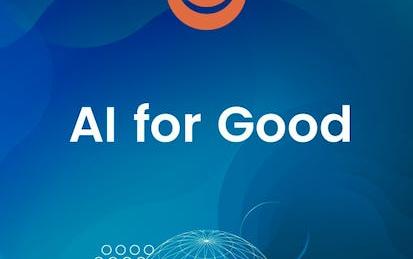
AI for Good
The AI for Good Specialization showcases how AI can be part of the solution when it comes to addressing some of the world’s biggest challenges in areas like public health, climate change, and disaster management. In these courses, you’ll learn from instructor Robert Monarch, who has over 20 years of experience building AI products in industry and working at the intersection of AI and public health and disaster management.
-
Course by

-
 Self Paced
Self Paced
-
 English
English

Hyperparameter Tuning with Keras Tuner
In this 2-hour long guided project, we will use Keras Tuner to find optimal hyperparamters for a Keras model. Keras Tuner is an open source package for Keras which can help machine learning practitioners automate Hyperparameter tuning tasks for their Keras models. The concepts learned in this project will apply across a variety of model architectures and problem scenarios. Please note that we are going to learn to use Keras Tuner for hyperparameter tuning, and are not going to implement the tuning algorithms ourselves.
-
Course by

-
 Self Paced
Self Paced
-
 3 hours
3 hours
-
 English
English
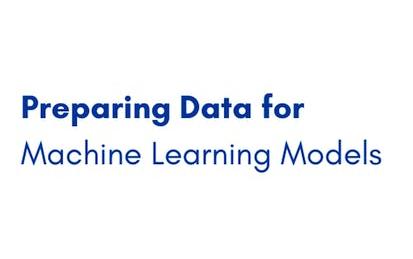
Preparing Data for Machine Learning Models
By the end of this project, you will extract colors pixels as training dataset into a form where you can feed it to your Machine Learning Model using numpy arrays.
-
Course by

-
 Self Paced
Self Paced
-
 3 hours
3 hours
-
 English
English

Supervised Machine Learning: Regression and Classification
In the first course of the Machine Learning Specialization, you will: • Build machine learning models in Python using popular machine learning libraries NumPy and scikit-learn. • Build and train supervised machine learning models for prediction and binary classification tasks, including linear regression and logistic regression The Machine Learning Specialization is a foundational online program created in collaboration between DeepLearning.AI and Stanford Online.
-
Course by

-
 Self Paced
Self Paced
-
 33 hours
33 hours
-
 English
English

Scikit-Learn to Solve Regression Machine Learning Problems
Hello everyone and welcome to this new hands-on project on Scikit-Learn for solving machine learning regression problems. In this project, we will learn how to build and train regression models using Scikit-Learn library. Scikit-learn is a free machine learning library developed for python. Scikit-learn offers several algorithms for classification, regression, and clustering. Several famous machine learning models are included such as support vector machines, random forests, gradient boosting, and k-means. This project is practical and directly applicable to many industries.
-
Course by

-
 Self Paced
Self Paced
-
 3 hours
3 hours
-
 English
English
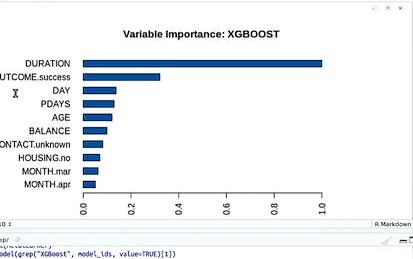
Predictive Analytics for Business with H2O in R
This is a hands-on, guided project on Predictive Analytics for Business with H2O in R. By the end of this project, you will be able apply machine learning and predictive analytics to solve a business problem, explain and describe automatic machine learning, perform automatic machine learning (AutoML) with H2O in R.
-
Course by

-
 Self Paced
Self Paced
-
 3 hours
3 hours
-
 English
English

Health Data Science Foundation
This course is intended for persons involved in machine learning who are interested in medical applications, or vice versa, medical professionals who are interested in the methods modern computer science has to offer to their field. We will cover health data analysis, different types of neural networks, as well as training and application of neural networks applied on real-world medical scenarios. We cover deep learning (DL) methods, healthcare data and applications using DL methods.
-
Course by

-
 Self Paced
Self Paced
-
 24 hours
24 hours
-
 English
English
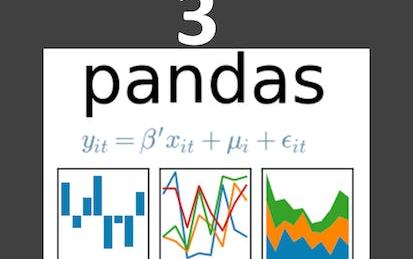
Employee Attrition Prediction Using Machine Learning
In this project-based course, we will build, train and test a machine learning model to predict employee attrition using features such as employee job satisfaction, distance from work, compensation and performance. We will explore two machine learning algorithms, namely: (1) logistic regression classifier model and (2) Extreme Gradient Boosted Trees (XG-Boost). This project could be effectively applied in any Human Resources department to predict which employees are more likely to quit based on their features.
-
Course by

-
 3 hours
3 hours
-
 English
English

Solve Business Problems with AI and Machine Learning
Artificial intelligence (AI) and machine learning (ML) have become an essential part of the toolset for many organizations. When used effectively, these tools provide actionable insights that drive critical decisions and enable organizations to create exciting, new, and innovative products and services. This is the first of four courses in the Certified Artificial Intelligence Practitioner (CAIP) professional certification. This course is meant as an entry point into the world of AI/ML.
-
Course by

-
 Self Paced
Self Paced
-
 11 hours
11 hours
-
 English
English

Unsupervised Machine Learning for Customer Market Segmentation
In this hands-on guided project, we will train unsupervised machine learning algorithms to perform customer market segmentation.
-
Course by

-
 Self Paced
Self Paced
-
 3 hours
3 hours
-
 English
English

XG-Boost 101: Used Cars Price Prediction
In this hands-on project, we will train 3 Machine Learning algorithms namely Multiple Linear Regression, Random Forest Regression, and XG-Boost to predict used cars prices.
-
Course by

-
 Self Paced
Self Paced
-
 3 hours
3 hours
-
 English
English

Machine Learning with H2O Flow
This is a hands-on, guided introduction to using H2O Flow for machine learning.
-
Course by

-
 Self Paced
Self Paced
-
 3 hours
3 hours
-
 English
English

Python and Machine Learning for Asset Management
This course will enable you mastering machine-learning approaches in the area of investment management. It has been designed by two thought leaders in their field, Lionel Martellini from EDHEC-Risk Institute and John Mulvey from Princeton University.
-
Course by

-
 Self Paced
Self Paced
-
 16 hours
16 hours
-
 English
English

Machine Learning for Investment Professionals
This course is uniquely tailored to the needs of investment professionals or those with investment industry knowledge who want to develop a basic, practical understanding of machine learning techniques and how they are used in the investment process. Incorporating real-life case studies, this course covers both the technical and the “soft skills” necessary for investment professionals to stay relevant.
In this course, you will learn how to:
-\tDistinguish between supervised and unsupervised machine learning and deep learning
-
Course by

-
 Self Paced
Self Paced
-
 17 hours
17 hours
-
 English
English

Advanced Deployment Scenarios with TensorFlow
Bringing a machine learning model into the real world involves a lot more than just modeling. This Specialization will teach you how to navigate various deployment scenarios and use data more effectively to train your model. In this final course, you’ll explore four different scenarios you’ll encounter when deploying models. You’ll be introduced to TensorFlow Serving, a technology that lets you do inference over the web. You’ll move on to TensorFlow Hub, a repository of models that you can use for transfer learning.
-
Course by

-
 Self Paced
Self Paced
-
 13 hours
13 hours
-
 English
English

Guided Tour of Machine Learning in Finance
This course aims at providing an introductory and broad overview of the field of ML with the focus on applications on Finance. Supervised Machine Learning methods are used in the capstone project to predict bank closures.
-
Course by

-
 Self Paced
Self Paced
-
 24 hours
24 hours
-
 English
English

Cloud Virtualization, Containers and APIs
Welcome to the second course in the Building Cloud Computing Solutions at Scale Specialization! In this course, you will learn to design Cloud-native systems with the fundamental building blocks of Cloud computing. These building blocks include virtual machines and containers. You will also learn how to build effective Microservices using technologies like Flask and Kubernetes. Finally, you will analyze successful patterns in Operations including: Effective alerts, load testing and Kaizen.
-
Course by

-
 Self Paced
Self Paced
-
 14 hours
14 hours
-
 English
English
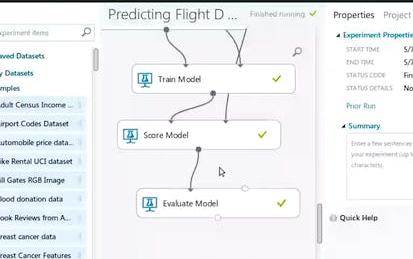
Predictive Modelling with Azure Machine Learning Studio
In this project, we will use Azure Machine Learning Studio to build a predictive model without writing a single line of code! Specifically, we will predict flight delays using weather data provided by the US Bureau of Transportation Statistics and the National Oceanic and Atmospheric Association (NOAA).
-
Course by

-
 Self Paced
Self Paced
-
 3 hours
3 hours
-
 English
English

Build and Operate Machine Learning Solutions with Azure
Azure Machine Learning is a cloud platform for training, deploying, managing, and monitoring machine learning models. In this course, you will learn how to use the Azure Machine Learning Python SDK to create and manage enterprise-ready ML solutions. This is the third course in a five-course program that prepares you to take the DP-100: Designing and Implementing a Data Science Solution on Azurecertification exam. The certification exam is an opportunity to prove knowledge and expertise operate machine learning solutions at a cloud-scale using Azure Machine Learning.
-
Course by

-
 Self Paced
Self Paced
-
 32 hours
32 hours
-
 English
English

AI and Public Health
In this course, you will be introduced to the basics of artificial intelligence and machine learning and how they are applied in real-world scenarios in the AI for Good space. You will also be introduced to a framework for problem solving where AI is part of the solution. The course concludes with a case study featuring three Jupyter notebook labs where you’ll create an air quality monitoring application for the city of Bogotá, Colombia.
-
Course by

-
 Self Paced
Self Paced
-
 9 hours
9 hours
-
 English
English

Machine Learning for Accounting with Python
This course, Machine Learning for Accounting with Python, introduces machine learning algorithms (models) and their applications in accounting problems. It covers classification, regression, clustering, text analysis, time series analysis. It also discusses model evaluation and model optimization. This course provides an entry point for students to be able to apply proper machine learning models on business related datasets with Python to solve various problems. Accounting Data Analytics with Python is a prerequisite for this course.
-
Course by

-
 Self Paced
Self Paced
-
 64 hours
64 hours
-
 English
English

Math for AI beginner part 1 Linear Algebra
'Learn concept of AI such as machine learning, deep-learning, support vector machine which is related to linear algebra - Learn how to use linear algebra for AI algorithm. - After completing this course, you are able to understand AI algorithm and basics of linear algebra for AI applications.
-
Course by

-
 Self Paced
Self Paced
-
 7 hours
7 hours
-
 English
English

Machine Learning Algorithms with R in Business Analytics
One of the most exciting aspects of business analytics is finding patterns in the data using machine learning algorithms. In this course you will gain a conceptual foundation for why machine learning algorithms are so important and how the resulting models from those algorithms are used to find actionable insight related to business problems. Some algorithms are used for predicting numeric outcomes, while others are used for predicting the classification of an outcome. Other algorithms are used for creating meaningful groups from a rich set of data.
-
Course by

-
 Self Paced
Self Paced
-
 14 hours
14 hours
-
 English
English

Machine Learning with ChatGPT: Image Classification Model
In this 1-hour project, you will learn how to build a machine learning model using ChatGPT. We will use the MNIST database which is a large database of handwritten digits that is commonly used for training various image processing systems. You will be introduced to the process of fine-tuning, which involves adjusting the model's parameters to learn task-specific relationships between input and output. You will import the necessary libraries and load the data, and then split the data into training and testing sets.
-
Course by

-
 Self Paced
Self Paced
-
 3 hours
3 hours
-
 English
English

Creative Artifacts
Creative Artifacts explores how different tools and structures can be used to increase creativity through a multidisciplinary lens. You will see how renowned artists use machine learning to expand their creative capacities, and you will gain experience collaborating with creative AI tools yourself. On a macro scale, you will examine the business strategies and economic policies that make organizations and regions more creative. As you progress, you will reflect on how these tools and structures can enhance your creativity and how they might impact the larger society.
-
Course by

-
 Self Paced
Self Paced
-
 21 hours
21 hours
-
 English
English



